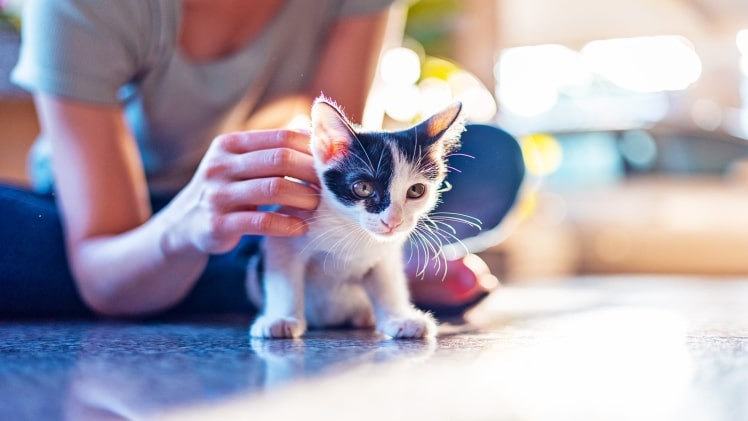Sometimes cat owners may miss subtle signs of acute or chronic illnesses in their pets. Unfortunately, a lack of awareness means the existing health issues progress undeterred to deeper problems that can be difficult to be treated. This is one reason why cat parents must keep a watchful eye on their furball’s health and wellbeing.
Timely vaccinations, regular wellness check-ups, being on top of grooming and dental routines, and contemplating having a medical backup in terms of cat insurance should something go wrong are essential aspects of caring for your cat Coco.
Cheap pet insurance policies help support a feline fur baby with basic health benefits during non-routine vet visits and medical emergencies. Consider buying a policy in the best interests of your pet’s health and potentially lower your financial stress in distressing health scenarios.
In the meantime, read this article to learn why you should not ignore the below-mentioned health conditions in your cat.
1.Dehydration
Dehydration can occur due to various reasons. For instance, exposure to heat on particularly hot days and during summer, gastrointestinal issues like vomiting and diarrhea, appetite loss, refusing to drink water, renal complaints, and many others.
The most common signs of this condition are increased thirst, dry mouth including gums, deteriorating skin elasticity, sunken eyes, abrupt changes in peeing and pooping habits, lethargy, and body weakness.
To confirm this condition, you can make a quick physical examination. Gently pull up the skin behind your furball’s neck between the shoulders with your hand. The skin should return to the earlier position immediately in a normal case. Suppose the pulled skin returns to the original position slowly; your furry baby is most likely dehydrated.
This test may not give accurate results when testing for dehydration in older dogs or very skinny/obese puppies. In a case like this, survey the doggo’s mouth, tongue, and gums. The canine might be dehydrated if the oral apparatus seems sticky or dry.
If you suspect something is wrong with your pupper’s health, take it to the vet right away. A vet visit is of utmost importance if your furry little one is suffering from stomach issues, vomits, diarrhea, or refusing food and water.
The vet might put your fur companion on intravenous fluids as a part of rehydration therapy. It is best not to take a chance when you are unsure about your canine pet’s health status.
2.Hypothermia
In this condition, a cat’s body temperature falls rapidly (below 95⁰F). Other signs of hypothermia are low heart rate, pale or blue mucous membranes, dilated pupils, weak pulse, and shivers. Should you notice any of the symptoms mentioned, contact your vet immediately.
Also, take your pet out of the cold environment, wrap it in a warm towel or blanket, and place warm water bottles or a heating pad wrapped in a towel next to your furball to keep it warm while you drive to the vet’s office in your car.
Although dehydration and hypothermia may seem like trivial health issues, they can quickly turn fatal. Cat insurance helps provide your munchkin with superior medical care during emergencies like this and many more. Contemplate purchasing cheap pet insurance in the least so getting medical help in needy times of health need not be financially burdening.

